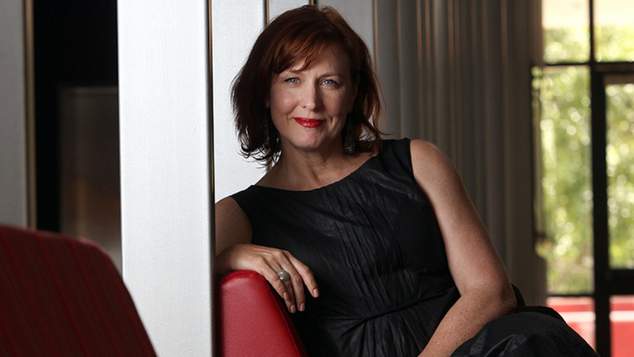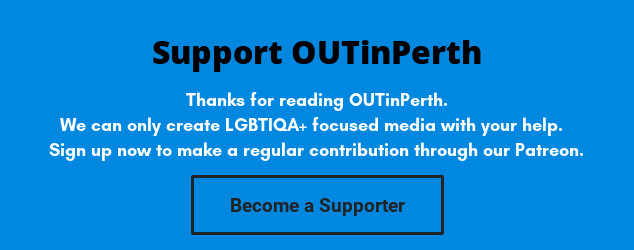
The Western Australia Opera’s production of Carmen has been a sell-out before the curtain even rises on the first performance.
It’s been a long journey to bring the production back to the stage at His Majesty’s Theatre. A few years ago the company abandoned plans to stage the work after there was concerns of a conflict with sponsor Healthway – in Bizet’s opera Carmen works in a cigarette factory.
Now that the opera has finally made it to the stage, audiences have flocked to get tickets to see one of opera lovers favourite works. The production sees respected director Lindy Hume return to Perth to stage the work. Hume was the Artistic Director of the WA Opera for many years before spending a stint guiding the Perth Festival.
OUTinPerth sat down with Hume and chatted about her all things Carmen.
Why is Carmen one of the most loved operas?
It’s so famous, it has so many amazing famous tunes and it’s this fantastic iconic female character. It’s partly its blessing, and partly a curse, that people hear the name ‘Carmen’ and they immediately think of something that’s in their heads about what this woman is. Usually something to do with danger and death and lust and sex. They’re pretty compelling ingredients.
Around the world there have been more and more productions of Carmen being put on. What do you think it is that makes this work so relevant in 2018?
It’s really interesting that you ask that, because this production I made here at the West Australian Opera 26 years ago. At the time it was quite controversial, it’s been called ‘the feminist Carmen’ and it was certainly the beginning of a series of productions that I’ve made that have been called feminist productions, but actually it weirdly prescient because actually right now the women’s movement is onto the normalisation of violence patriarchies and so forth.
That’s the environment in which Carmen lives and prevails in her own way, notwithstanding that she’s killed in the end. Her view I believe, her world view – which she articulates really early in the piece in the Habanera – which is that ‘love is free’.
Basically its a credo of autonomy, of female empowerment, that is well ahead of its time. Maybe people see in Carmen, a feminist before her time.
Having said that though, there’s an awful lot of loading of cliches. When people think about Carmen they think about a whole lot of sexual cliches, or gender cliches that are not really helpful. But also – and I have to be really clear – are not in the text. She never says anything, in anyway, that I believe is sexually provocative. She’s just a very independent minded woman.
That’s interesting because it means we’ve added all of that on over decades and decades of it being performed.
Well if you think about its history, it was not a success at the beginning because people found it shocking that there was a working class woman who did not adhere to the gender stereotypes of mothers and wives, and the behaviours of male and female society – where you need to stay on your side of the fence. She easily traverses across to the world of men, in terms of taking them on and beating them at their own game.
She chooses who he’s going to love, and she decides ultimately, I mean she’s got the famous line “Free I was born and free I will die.” That’s a statement that not every woman has the chance to make, and certainly not the other women in the opera.
Women in opera get a raw deal. They’re either crazy, sold off, die horribly deaths or kill themselves.
They are often victims, or they’re Madonnas or whores.
There was a production of Carmen in Florence recently where the ending was changed and instead of being killed, Carmen is still standing at the end. Did you ever consider making her victorious?
One would like to do that to a certain extent, because it’s not fair. She doesn’t deserve to die. Much in all, as many people think, ‘well she get’s what she deserved’. I think that’s the most misogynist thing I’ve ever heard. Nobody deserves to die because they choose who they love.
The way that I’ve approached the ending is that it hasn’t actually changed the music or the the text, but the choice that she makes, having understood that she is going to die anyway, through the cards, and also her decision not to live long, I believe she decided to die as well she can.
So she loses her fear of Don José and she challenges him. She challenges him and if he’s going to kill her. She says ‘Okay kill me now, or let me go my way’ and she means that. It’s not an empty threat. In this version she has the barrel of a gun on her forehead and she wants to die. She want him to either do or not do it.
What’s it like creatively coming back to a work that created years ago.
Actually, it’s really confronting. I made it when I was thirty. I was this fiery feminist. The production we made here all these years ago, no one expected it to last more than one or two seasons. Then Opera Australia bought it and took it over to Sydney and it just went absolutely everywhere.
The scenery has been upgraded, there are whole chunks of it that are new.
You think that it’s going to be outdated. I looked at the video, while squinting my eyes and thinking ‘Oh, is this going to be really bad?’ But no, it is really good. Of course some of the production was a bit clunky, because I’m a better director that I was twenty six years ago.
I’m really proud of this work and I’m really proud that it was the first collaboration between me and my colleague Dan Potra – who is the designer. He was literally straight out of NIDA on this production and he and I have made now 18 productions all around the world and become great creative collaborators, but this was the first.
I thought about approaching it is different ways, but when I looked at it I thought no – this is really quite strong, and it’s is really nostalgic for me to see myself, because of course I based Carmen on myself. It’s great to come back and re-prosecute those ideas as an older woman.
WA Opera’s production of Carmen is sold-out, but you can make sure you don’t miss out on seeing their next production Don Giovanni by booking tickets ASAP.
Do you need some support?
If you are struggling with anxiety or depression, support and counselling are available from:
Lifeline: 13 11 14
Beyondblue: and www.beyondblue.org.au
QLife: and www.qlife.org.au
QLife are a counselling and referral service for Lesbian, Gay, Bisexual, Transgender and Intersex (LGBTI) people.




